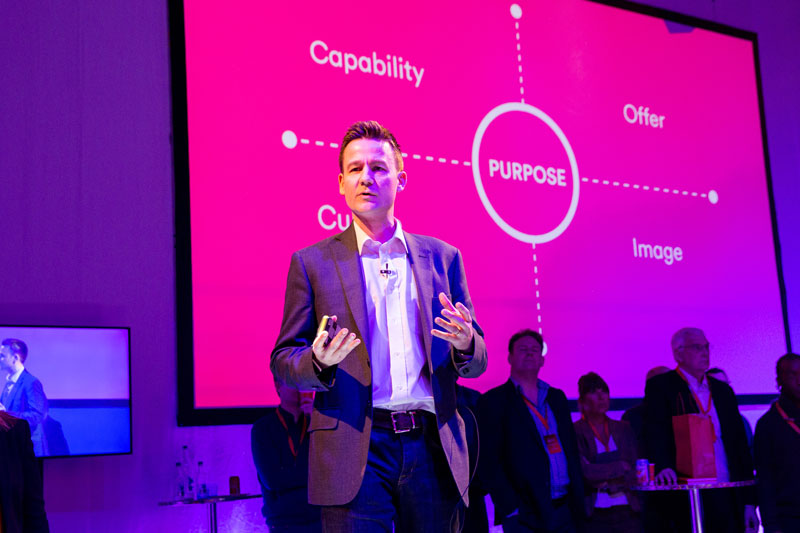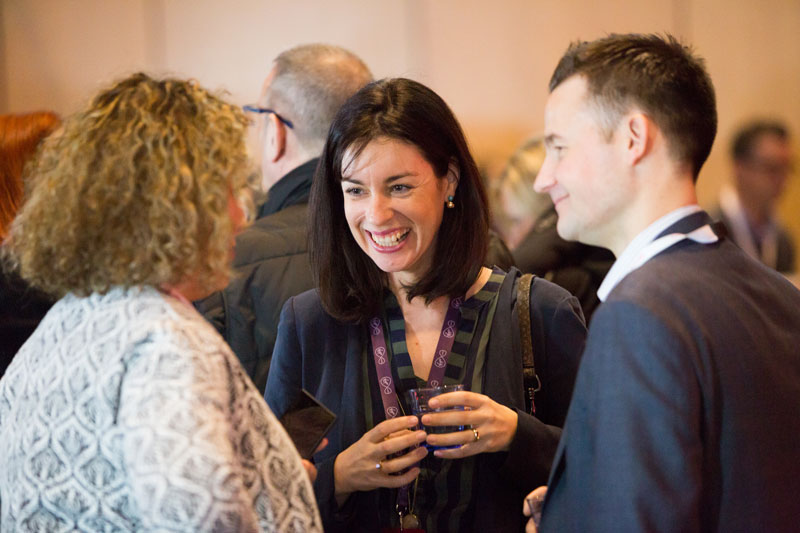
Over the last 15 years, the events industry has changed exponentially. EICC gathers together a few of the key players in Edinburgh to discuss the state of the industry and its future
Emma Little, Founder, ExecSpace
Emma Little, the Founder of meeting and events venue management company ExecSpace, discusses industry innovation, future event trends and what makes Edinburgh the perfect events city.
“Collaboration, communication and all parties working together in partnership to ensure the best possible outcome for the client is absolutely key”
“Personally I think Edinburgh is the best city in the world. We’ve got a small, easy to navigate city centre, a great culture with great people, increasingly strong transport links, absolutely cracking venues and hotel accommodation to match. Set against the backdrop of a city like Edinburgh, an event venue also needs to have a great team behind it focused on getting it right. Collaboration, communication and all parties working together in partnership to ensure the best possible outcome for the client is absolutely key. The approach definitely has to be ‘One Team’ with the client at the heart of every decision.
“There are a great variety of events going on in Edinburgh but definitely an abundance of staff engagement days, networking and collaborative events, which include an educational focus. We’re currently seeing the highest proportion of events coming from the finance, legal and technology sectors, as well as economic development, renewables and education in the public sector.

“The technology and charity sectors currently come out top in terms of creativity and innovation, with companies looking for something unique to persuade clients or prospects to attend their events. Clients are increasingly veering away from the traditional event offerings in favour of more unique experiences that reflect their brands.
“In terms of integrating technology in event management, the successful platforms are built by those who are truly listening to what event organisers need and want. Customers will get frustrated at tech if they have to go on several sites to achieve what could be done on one - that’s when integration and collaboration become key again.”
Alex Thomson, Events Manager, SCVO
As the Events Manager at SCVO, the national membership organisation for Scotland’s charities, voluntary organisations and social enterprises, Alex Thomson discusses the importance of technology, building relationships with venues and creativity in events in the third sector.
“Technology is not only changing the events industry but also changing the way we live and interact with each other”
“The third sector is really vibrant in terms of creativity and innovation. There is so much going on across our sector, from partnership events to local events, that brings communities together to tackle issues and make Scotland a better place. Currently, tackling digital exclusion is a huge strand of work that we at SCVO are focussing on.
“On the creative front, many third sector organisations continue to tap into their celebrity supporters and followers on social media to be heard. The use of infographics, video and social media are now also a key part in third sector organisations gaining support, getting their message out there and making a real difference to individuals and communities across Scotland. This works particularly well when launching a campaign or a new service at an event.

“Technology is not only changing the events industry but also changing the way we live and interact with each other. We need to make better use of technology to run our events, and keep up with the latest trends. There’s so much out there to help us be better and more efficient at what we do in the run up to our events, how we use it at our events and how we engage and interact with people.
“For the majority of third sector organisations budget and cost are key, as well as accessibility, venue services and location. And then there’s also the relationship and trust with venues. Many third sector organisations don’t have event managers or people employed and skilled to run their events. This makes a friendly venue contact, who’s readily available on the phone, invaluable when hosting an event.”
Liz McAreavey, Chief Executive, Edinburgh Chamber of Commerce
As Chief Executive of the Edinburgh Chamber of Commerce, Liz McAreavey supports businesses of all sectors and scale. Here she discusses the importance of collaboration in event management and how event managers can showcase their skills through technology.
“Business events are on the rise, so working together and adopting a collaborative approach helps to avoid duplication and can help us work more productively”
“Events are an incredible platform to showcase your business and its offerings to your target audience, especially in sectors which are generally office- or desk-based. Hosting events can engage and excite your audience, showing your business in a different and creative light.
“Business events are on the rise, so working together and adopting a collaborative approach helps to avoid duplication and can help us work more productively. For example, the Edinburgh Chamber of Commerce worked in partnership with the City of Edinburgh Council to host a ‘City Vision 2050’ event. By working together we succeeded in attracting an audience of over 140 delegates from major city businesses and stakeholders and in so doing, supporting one of our key partners.

“Technology is driving change across every industry, from financial and academic institutions to arts organisations. For event managers technology can be utilised to improve productivity and enhance the attendee experience. Things such as a simple online booking process issuing e-tickets, smartphone communications and ‘scan in’ registration points at events are simple examples of how technology can be used to create a positive experience. Further developments such as AI and ‘Real Time Analytics’ can also help events managers provide smoother and more personalised experiences for guests.”
Claire McHardy, General Manager at Levy
Claire explains what EICC’s catering partner, Leith’s, is doing to create a greener future in the catering and events space.
“I think people can still have preconceived ideas about meat free dishes. In menu tastings, clients often enjoy the meat free option and realise that it is just as tasty and substantial as the meat option.”
“Seasonality is a major focus in Leith’s sustainability mission. In our new menus, we include dishes such as a seasonal slaw, using only produce that is available at a specific time of year.
“With our dinner main courses, we're aiming to make them dairy and gluten-free where possible. So many people have allergies or intolerances nowadays. We can limit overproduction - and therefore food waste - by making all of the dishes dairy and gluten-free, rather than offering different dishes for guests with allergies or dietary preferences. It also reduces the likelihood of a delay serving dishes, and promotes more inclusivity in the catering space.
“I think people can still have preconceived ideas about meat free dishes. In menu tastings, clients often enjoy the meat free option and realise that it is just as tasty and substantial as the meat option. We hosted a client recently who still wanted a meat dish but switched from lamb to venison, which is a more sustainable option, and they opted for a vegetarian starter.

“To keep clients and delegates informed on the environmental impact of their food choices, Leith’s is now working with Foodsteps. It’s a calculator tool and food labelling system that allows users to build granular insights on their food footprint through packaging, ingredient origin, cooking methods, storage, food waste, transport and beyond. These are then communicated through carbon impact labels.
“Our new menus rate the food choices from A, being most environmentally friendly, to F, which is the least. We first introduced it in our street food options in August 2023, during the Edinburgh Festival. The feedback indicated that in many cases customers put more thought into their food choices. Obviously, the food labelling isn’t there to try to stop anybody from eating what they want - it’s to give people the option to make an informed decision.”
This feature was originally published in Spring of 2018


